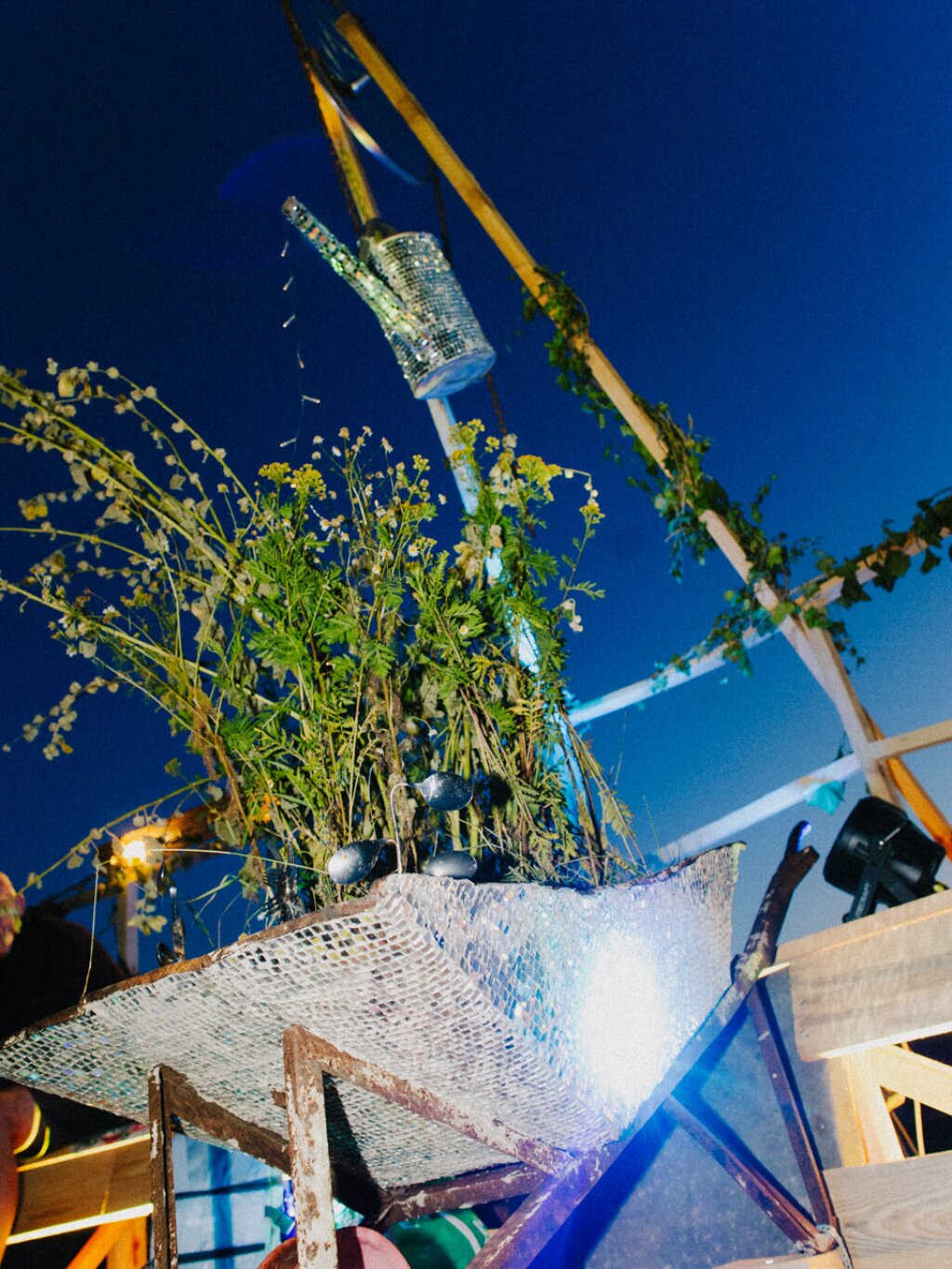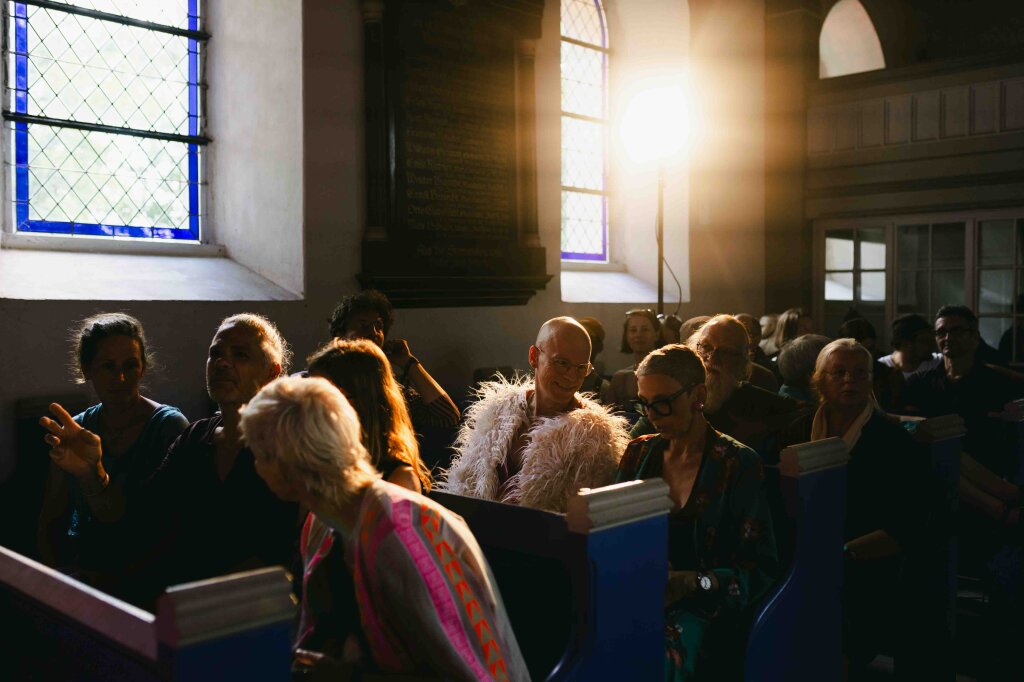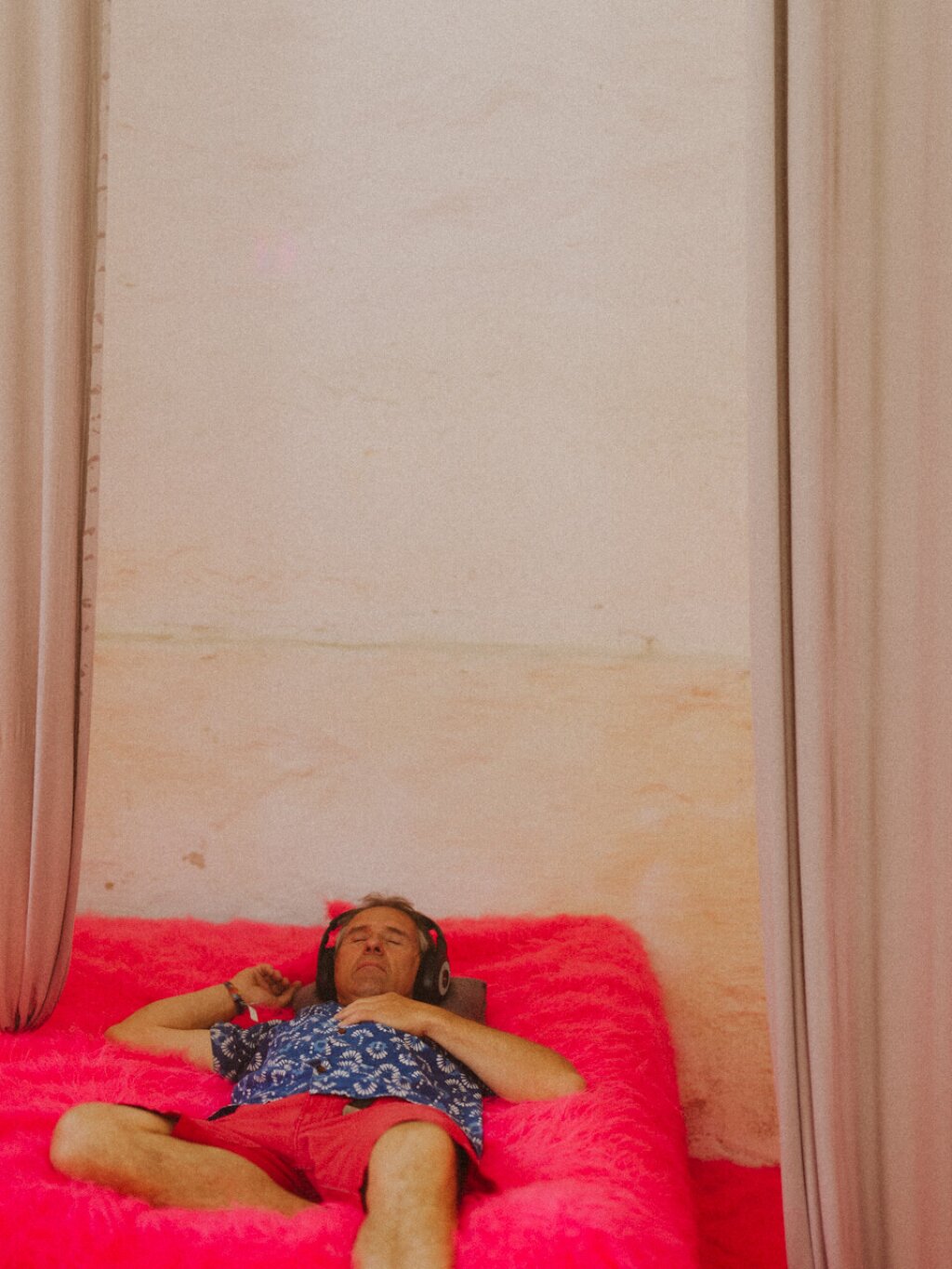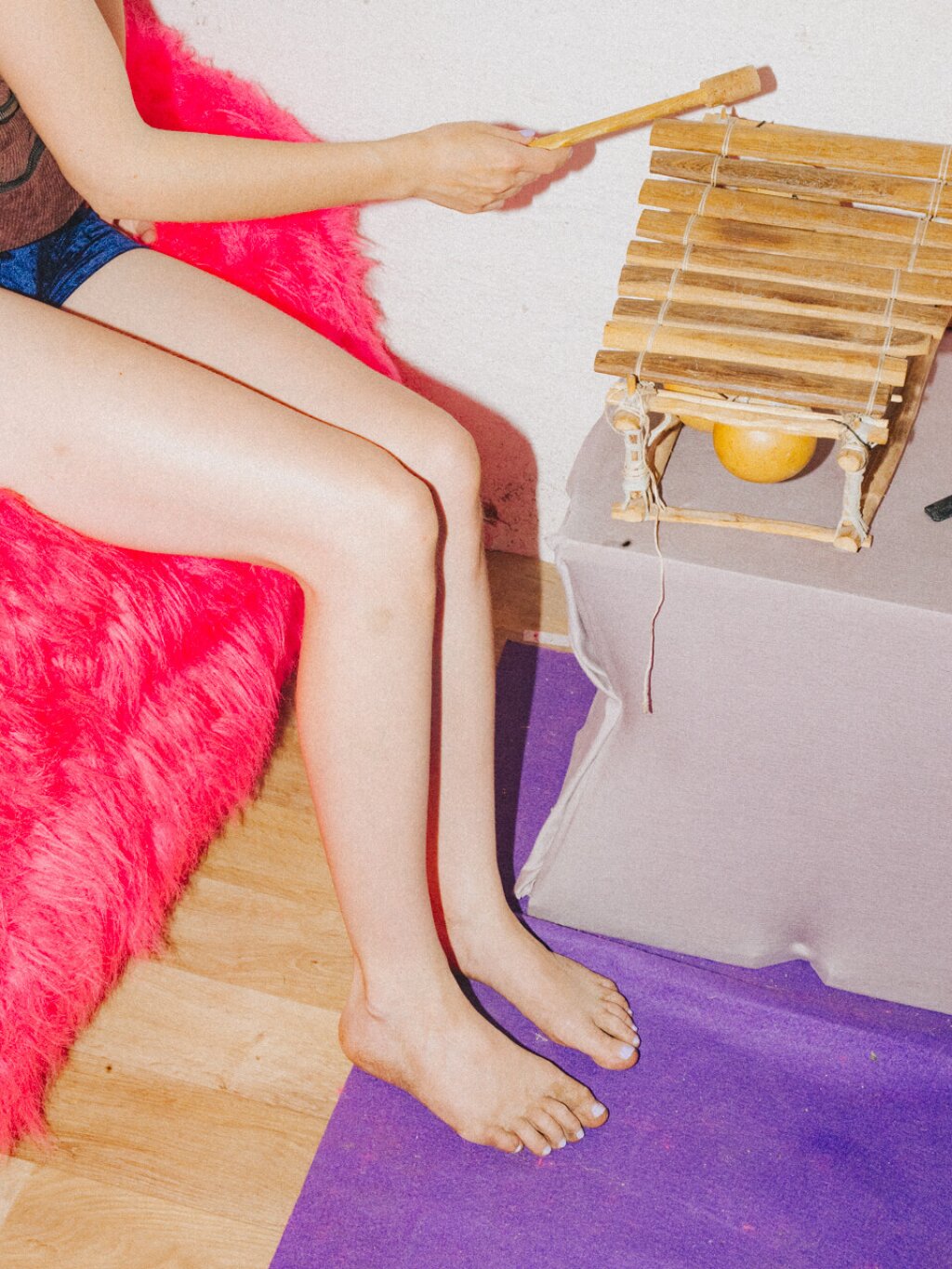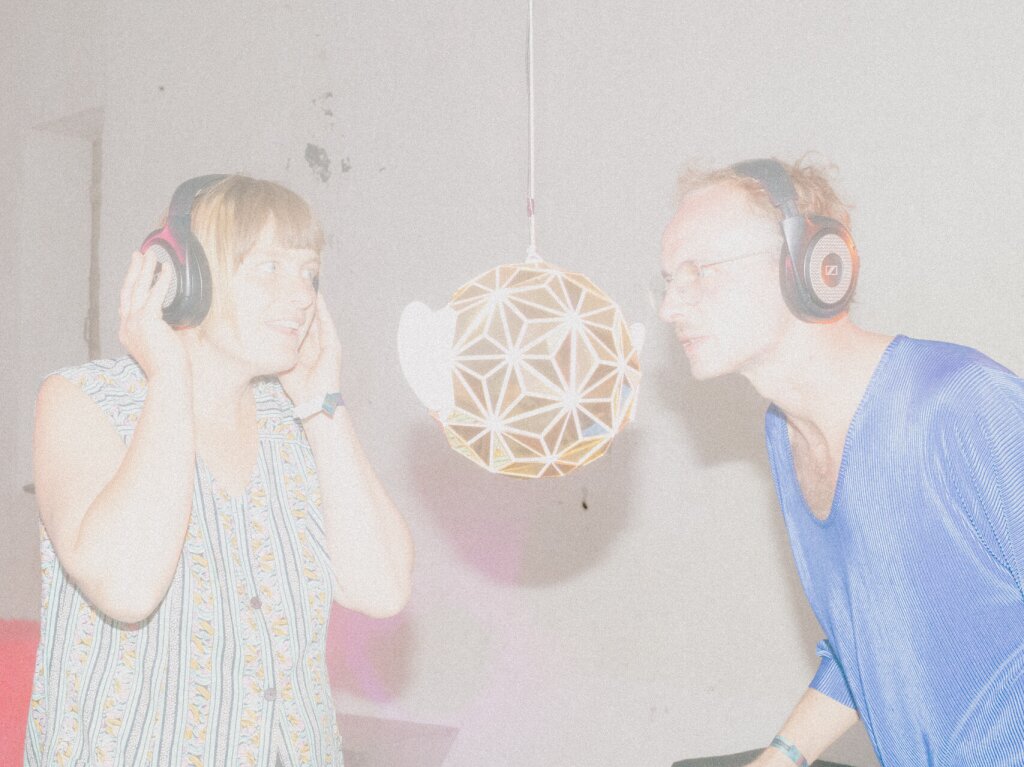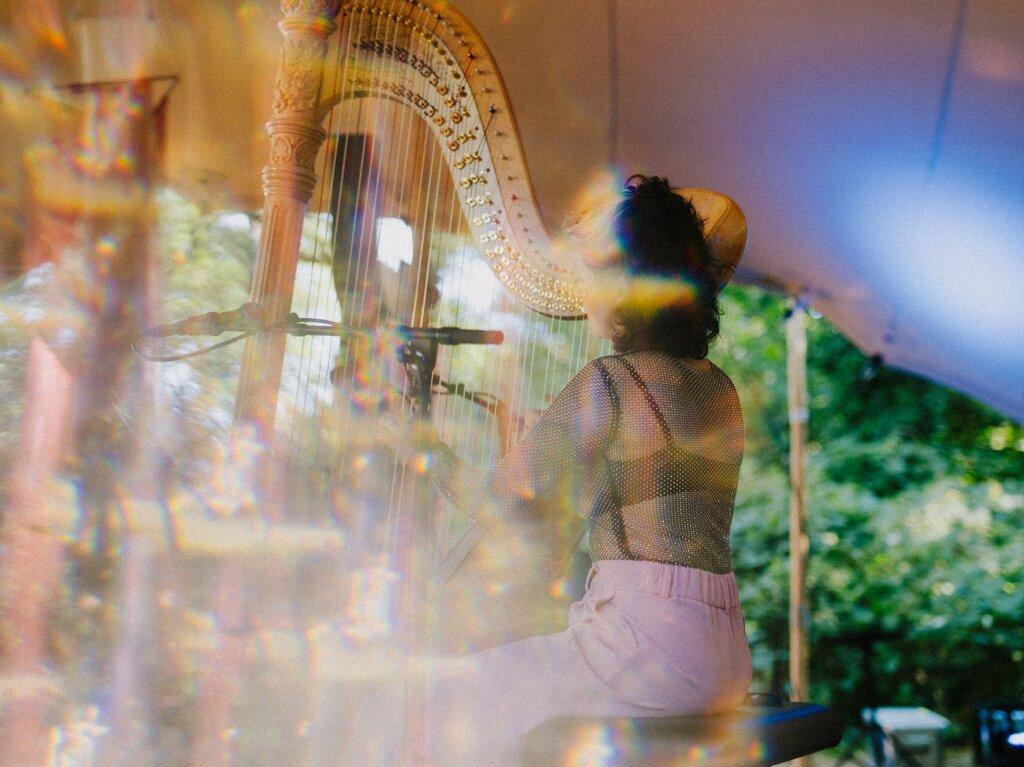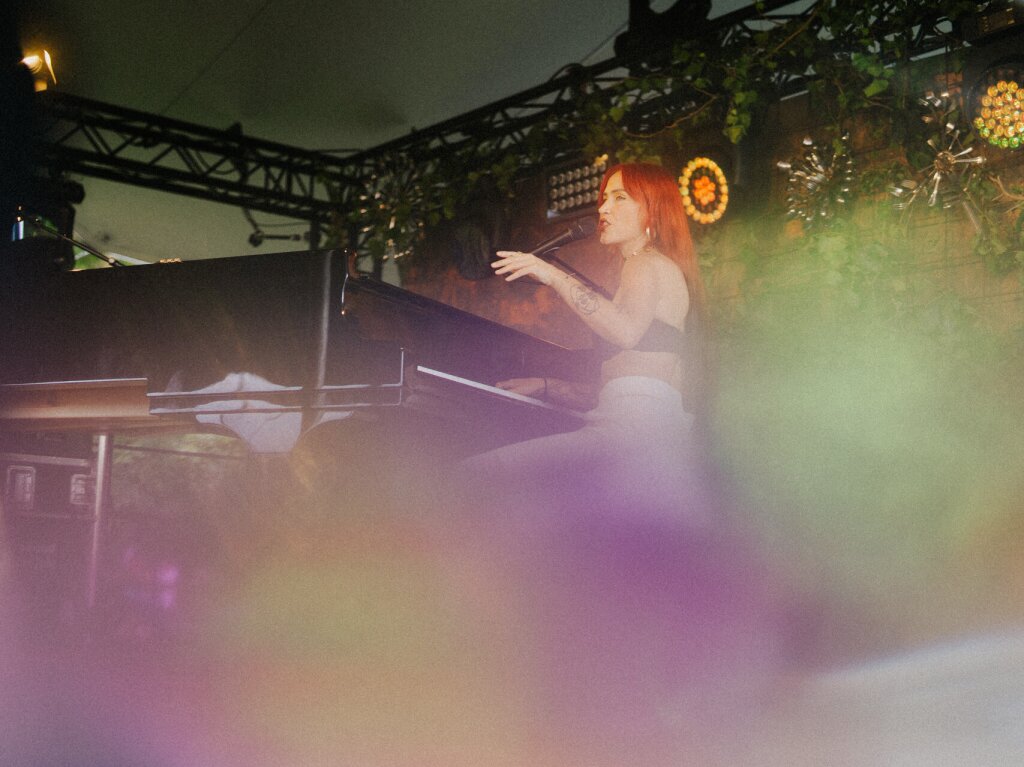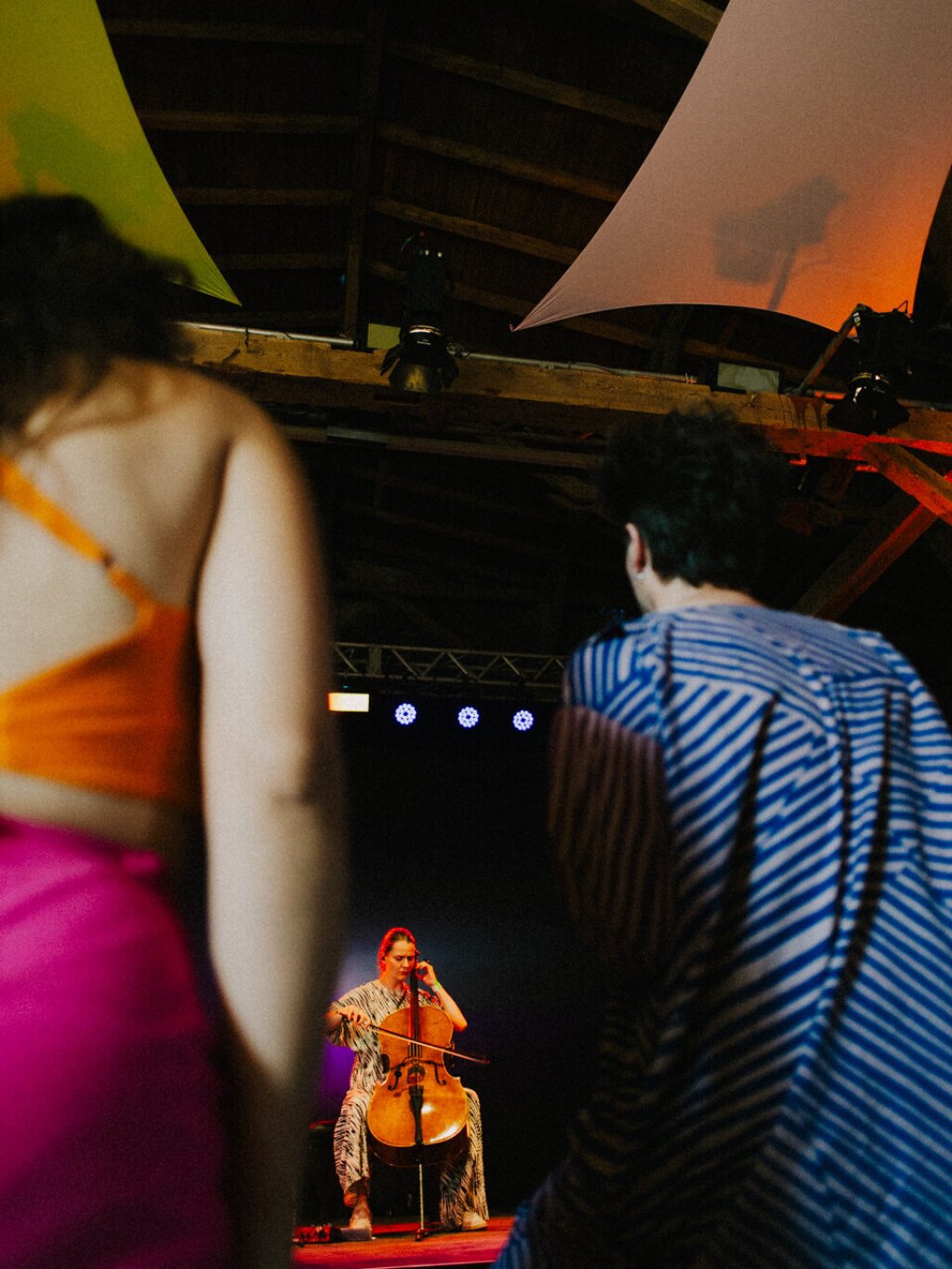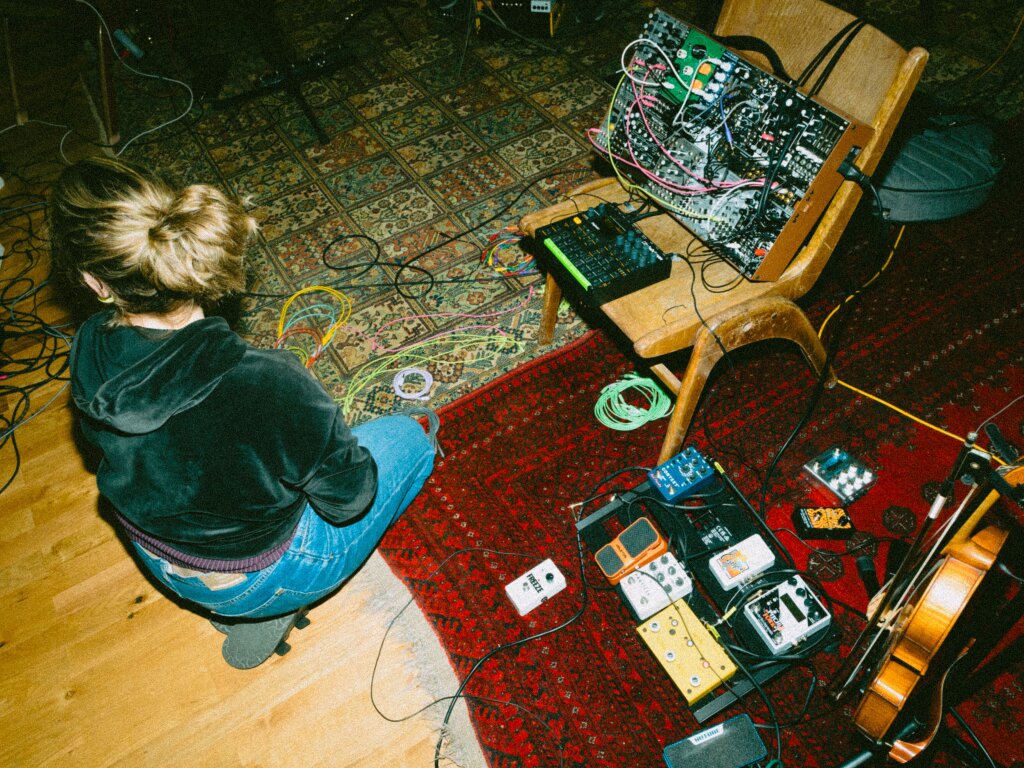Laura Großmann has experienced several editions of the Detect Classic Festival. In 2024, she did an internship with us and explored the question of which utopian spaces can be discovered at the Detect Classic Festival.
At what levels are festivals places of utopia? What makes these places so special for us and how can they be experienced? What can we take with us from these places?
These were the questions I asked myself when I had the opportunity to experience Detect 2024 for the third time. The words ‘utopia’ and ‘eutopia’ are derived from the Greek for ‘no-place’ (outopia) and ‘good-place’ (eutopia), respectively. Utopias depict places that do not (yet) exist – forms of social coexistence that we dream up, conceive and want to experience. The term dates back to the 16th century and has provided space for social imagination since.
Utopias always function as a meaningful alternative to the status quo. They question current structures and try to find alternatives. I wondered where in our society today these places exist that make utopias tangible, and I think the Detect Classic Festival is such a place.
detect as a social community space
Schloss Bröllin is a cultural centre that provides a setting for artistic creation, performing arts and creative exchange. It is therefore a wonderful counterpart to Detect.
Every year, the festival creates individual and collective moments of togetherness and a framework for a different experience of society. Through the network of the Festspiele Mecklenburg-Vorpommern, a wide range of art and cultural collectives, an awareness structure and the curatorial team, Detect manages to create an intergenerational space where young and old can meet, dance and listen. The multimedia, affective performances appeal to all the senses. Each stage offers space for genre fusion. Whether it's techno beats at Là Kritz, classical concerts at Bogen or electronic sounds at Flora, there is plenty to discover.
Collective belonging and individual identities roam freely through the musical and performative worlds that open up, creating a sense of collective belonging on the one hand, and offering opportunities to experience individual identities on the other. Numerous moments provide a place for questions about the self and an awareness of the shared experience of music that connects us.
the temporality of sound
Cultural anthropologist and music journalist Bianca Ludewig describes festivals as ‘temporary spaces of possibility’ that reflect current cultural techniques, lifestyles and genres. She sees these spaces as areas of tension between innovation, play and experimentation.
While our daily lives are often tightly scheduled, festivals offer a special space in which utopian moments can arise because time seems to have a completely different structure. We can immerse ourselves in sound worlds, whether it's ten in the morning or eleven at night. Play and experimentation can be tried out and created in the interactive space of Kollektiv eigenklang's workshops and installations.
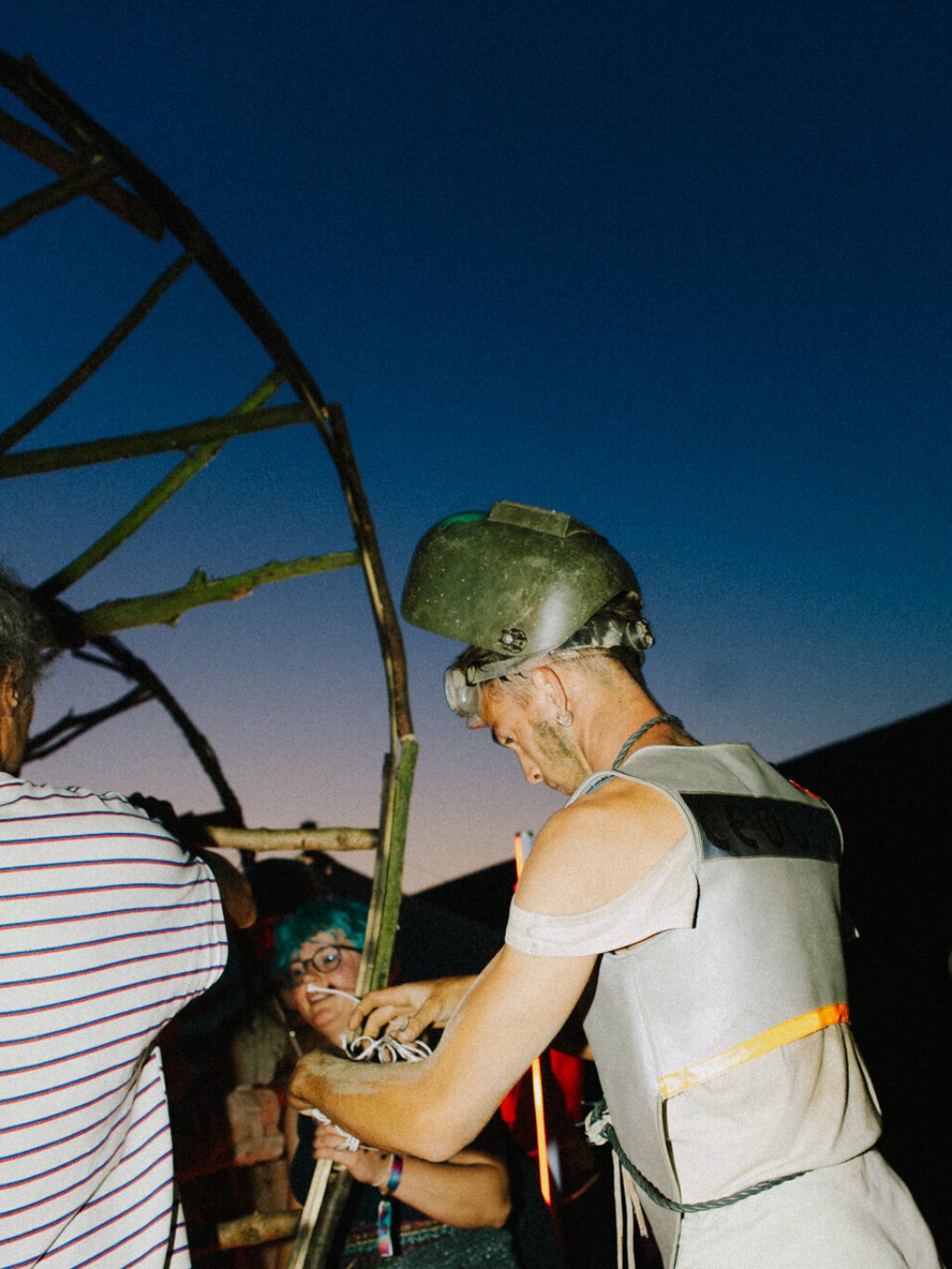
deconstruction of genre categorisations
The Detect often deconstructs genre categorisations. Whether it's a classical concert with instruments from outside the European tradition, composed music for synthesizers or choral intermezzi between DJ sets. These moments of transcendence are another utopian element for the Detect.
In terms of curation and dramaturgy, the boundaries of genres are rethought by fusing classical and contemporary voices and breaking down or opening up performance practices. The intention of constituting this festival as a music festival that remains both explorable and experimental remains central. And it is precisely this joy in exploring new experiences that is a prerequisite for utopian potential.
moments of utopia
With its many different voices, Detect once again showed me moments of immersion and utopia this year. The prelude was provided by Erland Cooper and a string quartet, whose musical breeze took me directly on a journey into the nature of Scotland. The harpist Teresa Emilia Raff sparkled and shone with the morning sun at the Kokon and took me with her to higher cloud frequencies. Intermezzi by Maradiuli (Georgian for timeless) wove five voices into a soundscape that you could snuggle up to. Together, we listened to the bow of cellist Dobrawa Czocher, whose sounds grew into a fine and harmoniously filled soundscape in the evening light.
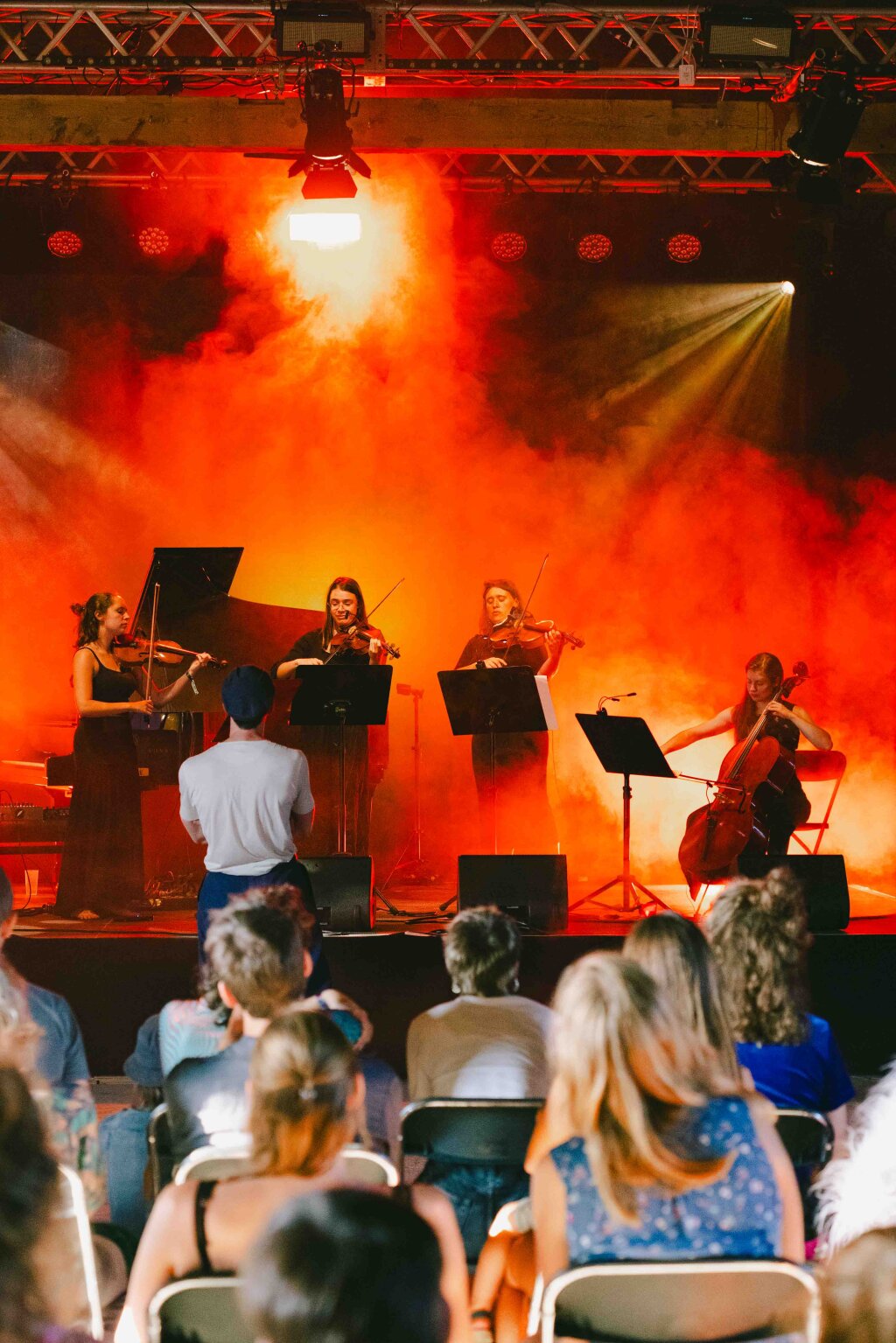

JakoJako and the Detect Ensemble created new sonic utopias by subjecting the sounds to a synthesis and thus varying in style and sound. Finally, La Chica took us on an empowering journey of listening, singing and meditating together.
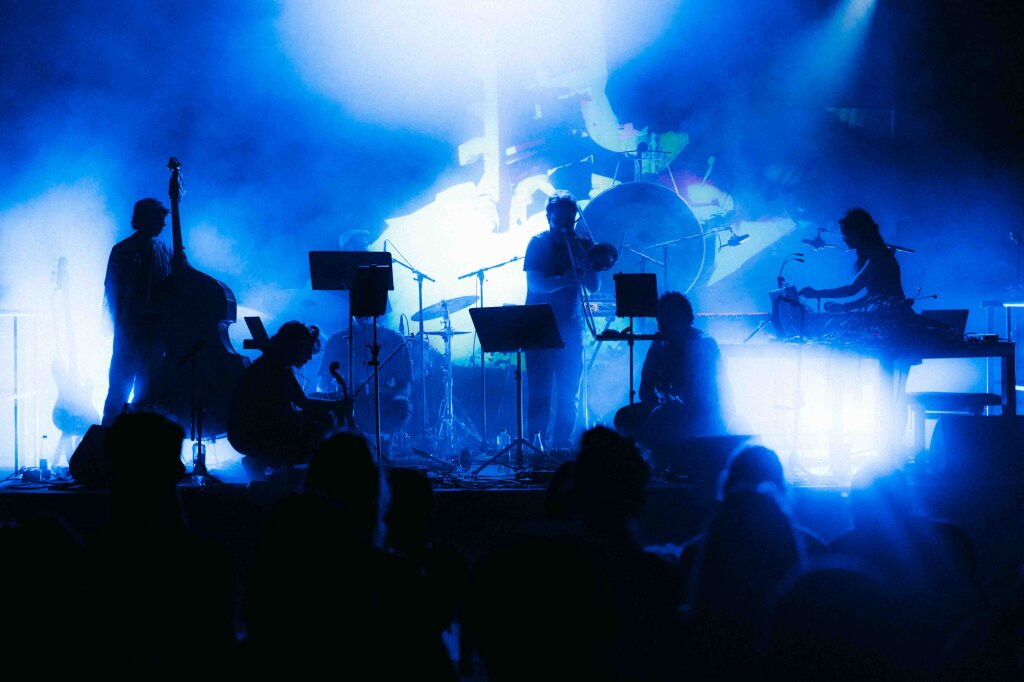

So what makes the Detect Festival utopian? Is it the transcendence of musical curation? The place that is transformed into a new temporary world? Or is it the people who are inspired and carry new ideas into the world?
Probably all of the above. The Detect Classic Festival stands for deceleration and acceleration at the same time, for delving into worlds created by artists that allow us to feel authentic and connect with each other. If Detect is a sound journey, then the artists guide us to places to dream. And, of course, there are all the inspiring people who listen to the waves of the journey and hold and help shape this soundscape.
text: Laura Großmann
fotos: Sophia Hegewald und Lucie Schulze
redaktion: Jasmin Falk
Article
This was the Detect 2024
Join us as we look back and listen to the 2024 edition of the festival.
Article
Looking Back at Our Autumn Residencies 2024
In autumn 2024, we were able to realise several residencies in Wendland. A look back at days getting shorter, rural tranquillity and musical fulfilment.
